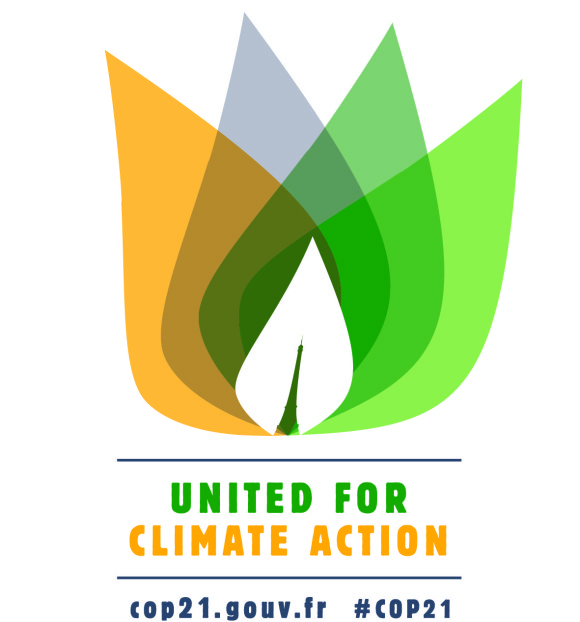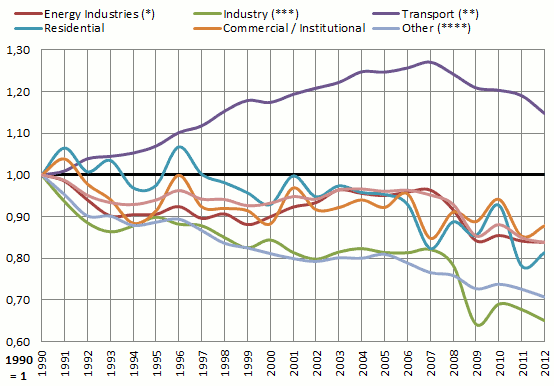Climate Action and the Transport Sector
 COP21 was the international climate change conference put on by the UNFCCC (United Nations Framework Convention on Climate Change), and took place in December 2015 in Paris. Essentially this conference aimed to achieve legally binding and universal agreements on climate issues, with the focus being reducing the emission of greenhouse gasses (GHGs).
COP21 was the international climate change conference put on by the UNFCCC (United Nations Framework Convention on Climate Change), and took place in December 2015 in Paris. Essentially this conference aimed to achieve legally binding and universal agreements on climate issues, with the focus being reducing the emission of greenhouse gasses (GHGs).
And who produces a lot of GHGs? The transport sector. Within Europe, the transport sector emits 24.3% of Europe’s GHG emission, behind the energy sector which emits 29.2%. Globally, the transport sector is responsible for 22% of GHG emissions. Other sectors, for comparison, are grouped as Energy Industries, Industry, Residential, Commercial/Institutional, and Other. While these other sectors have managed to bring down their emissions over the years, the transport sector (the graph below shows European sectors only) stands out as the line above all the rest, only since 2008 slowly coming down.

Graph: EU greenhouse gas emissions from transport and other sectors, 1990-2012 / DG CLIMA, European Commission
Now the world has a new climate agreement in the form of the Paris Agreement – see here for the official text – but what does this mean for transport? Well, we should and will celebrate this diplomatic achievement, as the road was long to get here. However, especially within the transportation sector, there are huge omissions, such as aviation and shipping. In a sense, the hardest part is still ahead of us – making the changes needed.
Transport Sector and the Way Forward
We can conclude that the transport sector is a bit of a bad pupil in terms of climate change and GHG emissions. However, the transport sector is motivated to turn this around, willing to present itself as a strong and united front that is ready to take action to mitigate climate change and reduce its emissions. At the International Transport Forum (ITF) in May 2015, 54 transport ministers recognized the need to address this, issuing the following statement that they “Recognize that the new international climate agreement, which is to be forged and agreed by COP21, should encourage mainstreaming of low carbon transport in global policies on climate change and sustainable development.”
At the same time, the Paris Process on Mobility and Climate (PPMC), flagship of the transportation sector during the COP21 of which WCA and ECF are a part of, continues in its role as organizer of transport climate action. An initiative of Michelin Challenge Bibendum (MCB) and the Partnership on Sustainable Low Carbon Transport (SLoCaT), this initiative brings together over 150 organizations working in sustainable mobility that support effective action on transport and climate change. Post-COP21, PPMC has collected information on all the climate actions of various transport inititatives and follows closely the reorganization of the Lima-Paris-Action-Agenda into the Global Climate Action Agenda.
The UN process on new Sustainable Development Goals (SDGs)
ECF/WCA Secretary General Bernhard Ensink is a member of Technical Working Group (TWG) of the UN Secretary-General’s High Level Advisory Group (HLAG) on Sustainable Transport. The outcome of COP21 and the UN agreement on the Sustainable Development Goals come together to create strong advocacy tools for the promotion of cycling. This is the reason for WCA and ECF to put so much work in these processes. ECF/WCA also work on a Voluntary Commitment to the United Nations, with the aim to have a modal shift towards cycling worldwide as well as doubling cycling mode share in Europe. The Voluntary Commitment to the UN comprises of the following goals:
- Show the importance of cycling to achieve the new UN Sustainable Development Goals, with special attention to climate action
- Showcase the ambitions of cities to increase the modal share of cycling worldwide and to double cycling in Europe by 2020
- Mobilize support of WCA and ECF members to enable local, national and international governments and institutions to scale up action on cycling
The Global Policies team based in Brussels is continuing to work alongside its partners within SLoCaT, the PPMC and the TWG to promote sustainable transportation, and to promote a shift in our vision of mobility.
Suggested Reading:
Connections (Transport & ICT): Envisioning the Transport We Need. Nancy Vandycke, World Bank, member of the TWG supporting the HLAG.
